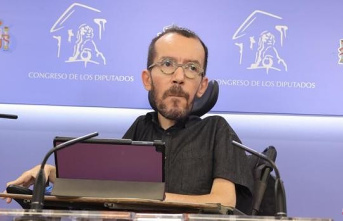Public workers in Spain will be able to telecommute up to 3 days a week. The agreement reached with CSIF will be ratified by the Council of Ministers imminently, in the coming days, so that up to 230,000 employees of the General State Administration will be able to work remotely as long as they voluntarily accept this new working day model labor agreement for public employees.
According to parliamentary sources pointed out to ABC, the teleworking decree that addresses the possibility of covering the working day remotely could go through the Council of Ministers this Friday, May 13. Although, from Haciendan they recognize the existence of this agreement although they do not date its definitive approval.
Imminently, yes, the text will see the light and will mean a new step in the labor relations of public employees with the Administration
. It should be remembered, furthermore, that the model is part of a plan for energy saving and efficiency that is being prepared by the cabinet of Minister María Jesús Montero. Therefore, the component of the energy cost that public bodies affect in the midst of a price crisis has weighed on the proposal transferred to the unions.
The first approach to the agreement took place in April 2021 with the then Minister of Public Function, Miquel Iceta. At the end of last year, the Minister of Finance, María Jesús Montero, assured that the decree would see the light of day at the beginning of the year. Although the price escalation underpinned by the war in Ukraine and the transport stoppage in the first months of 2022 have shifted the calendar of measures to be addressed by the Government.
Specifically, this new working day model will affect people at the service of ministries, autonomous bodies, state agencies. In addition, it will be voluntary and reversible and will always be subject to guaranteeing the face-to-face provision of services to citizens. It may also be authorized in exceptional situations of force majeure that imply a restriction of mobility, as happened last winter with the Filomena storm or during confinement.
Regarding expenses, the Administration will provide the computer equipment with data cards and the applications, office automation and cybersecurity tools necessary for the activity, together with specific technical training, prevention of occupational risks (prevention of stress or social isolation) and Data Protection.
Another of the main novelties included in the agreement is the promotion of teleworking to improve the coverage of services to citizens in empty Spain, as well as in positions that are difficult to cover due to the high cost of living (for example, the case of Balearic Islands). In these cases, a face-to-face service provision of at least 10% per month may be established, or what is the same, it may be possible to telework 20 of the 22 working days.
Regarding the Energy Saving and Efficiency Plan in the field of the General State Administration, the president of CSIF, Miguel Borra, assures that it is a patch, that it arrives late and that a specific regulation on teleworking in the company has not yet been developed. AGE, while the private sector already has clear regulation.
Teleworking, according to the president of CSIF, should have been developed for more than six months in line with the agreement reached between the Government and the unions. In his opinion, the key to saving energy must be that respecting access to the administration makes it easier for public employees to telework with all guarantees.
2












